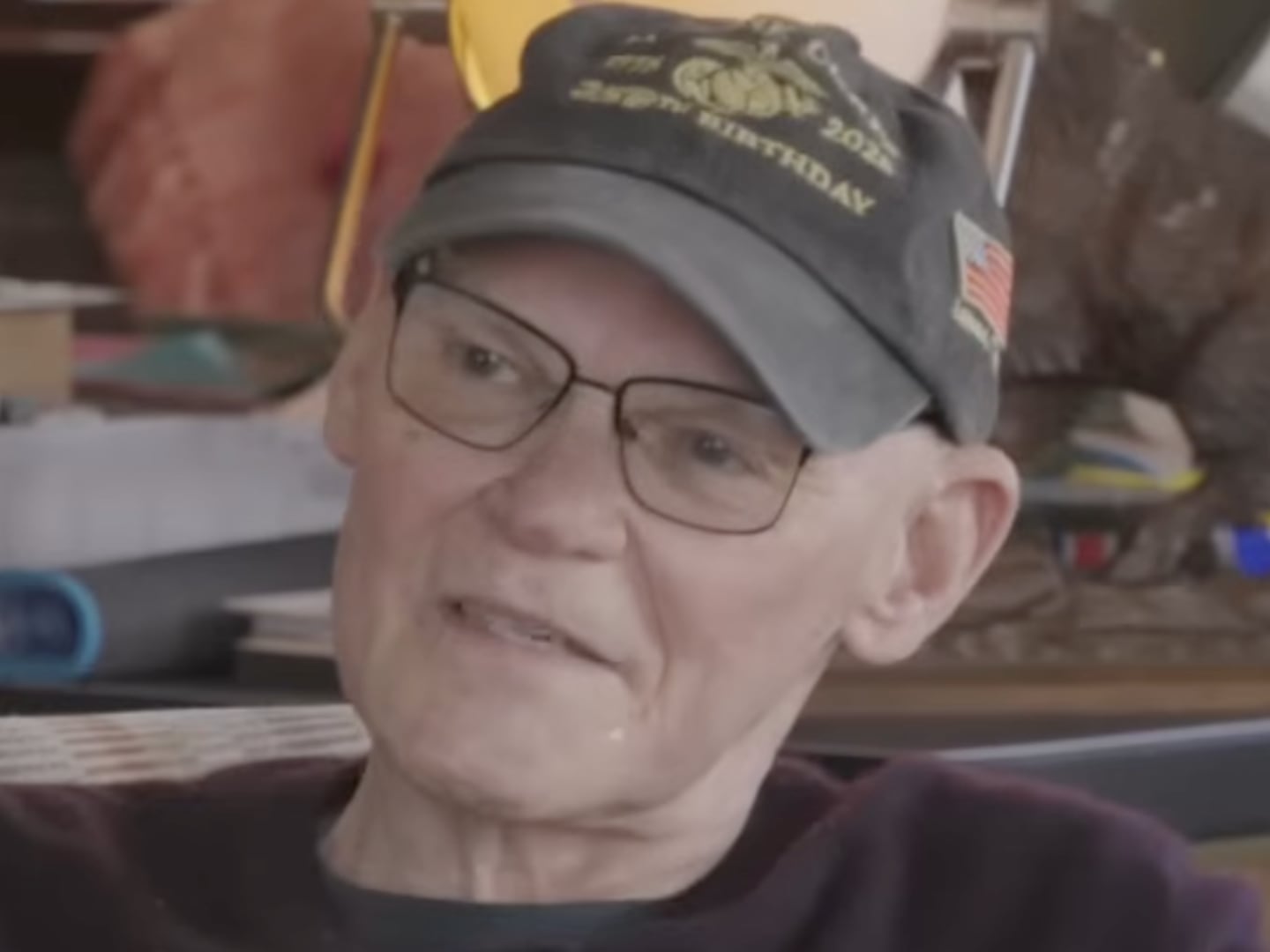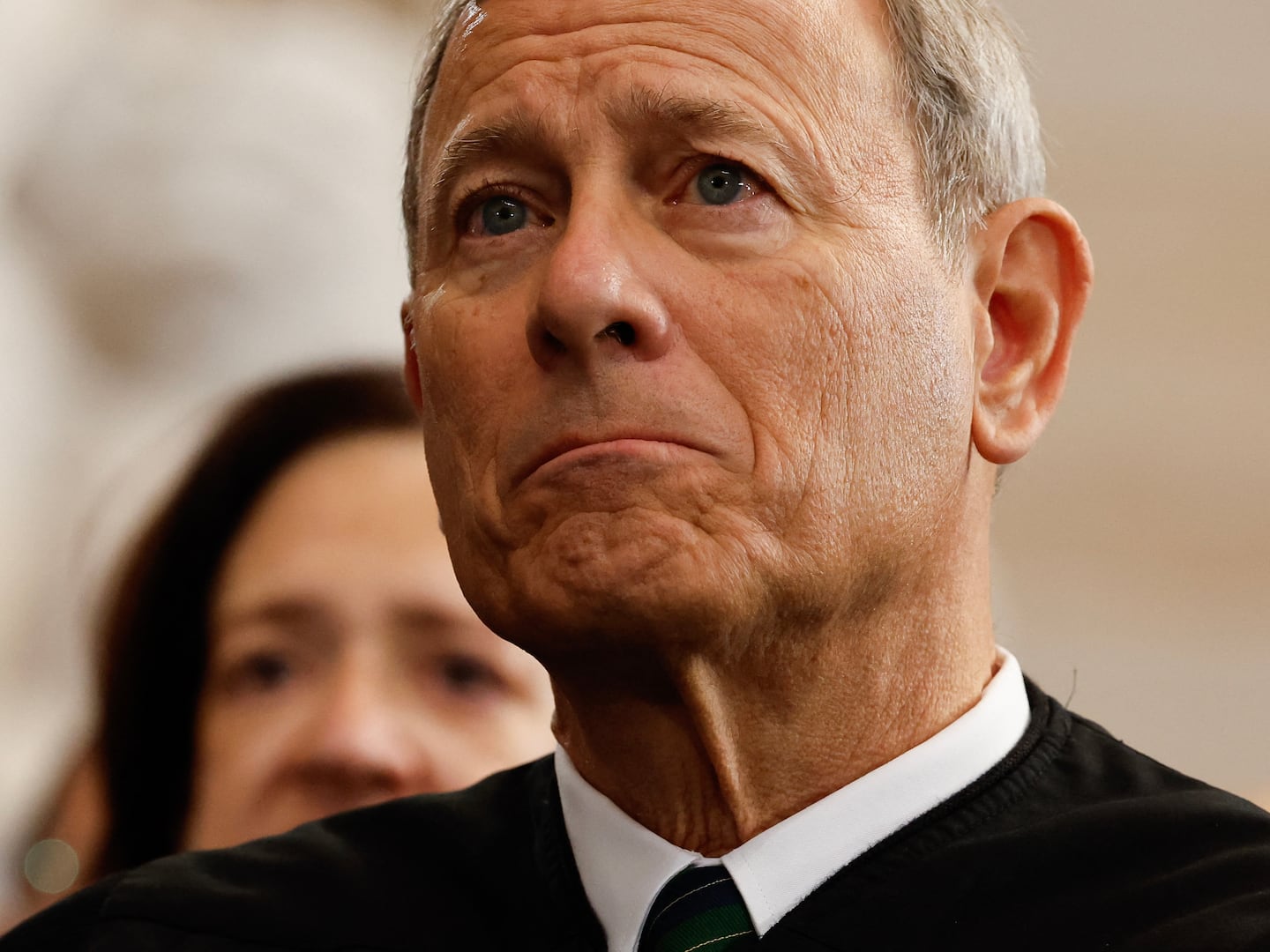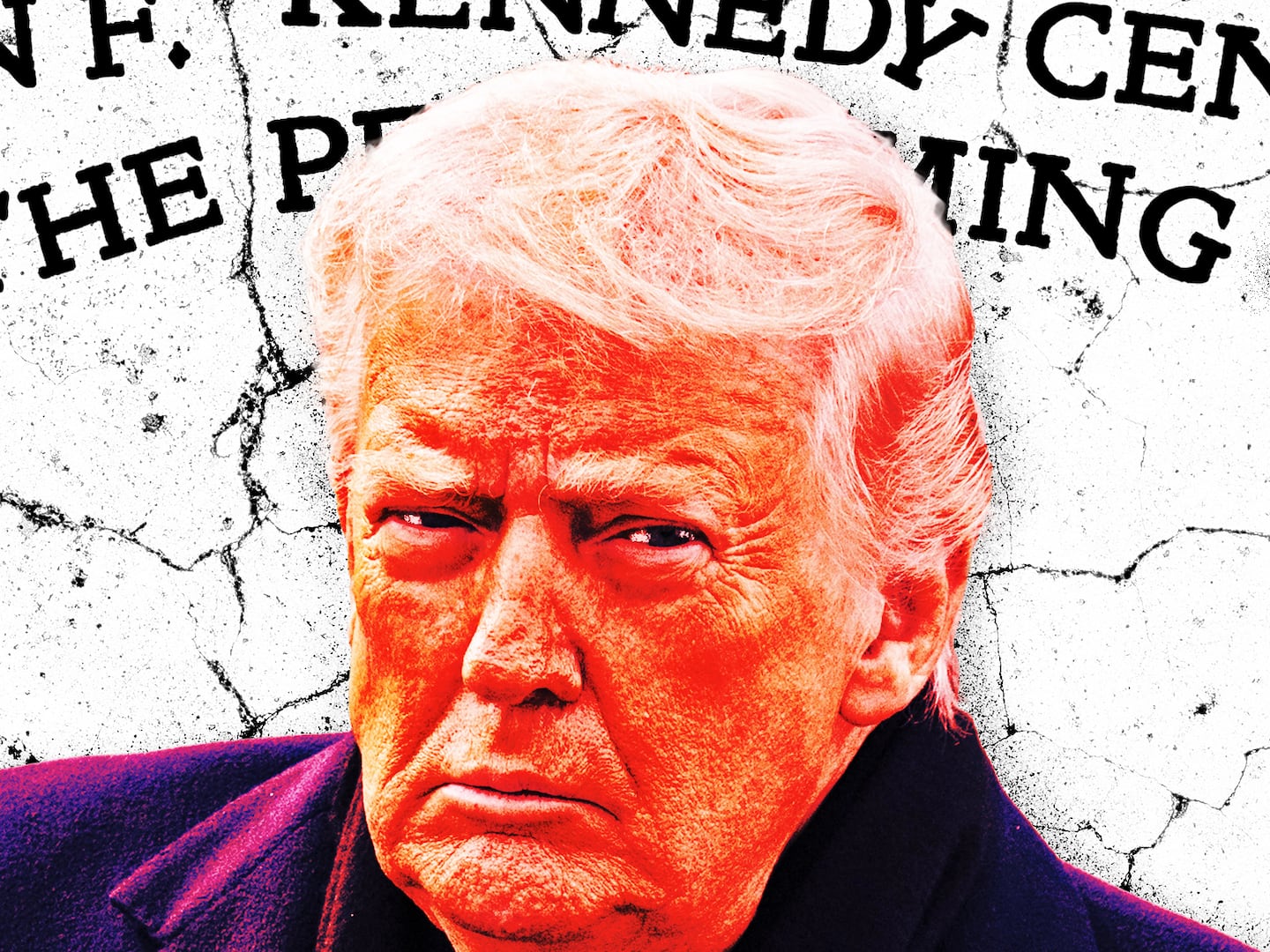
After seven years of playing the hapless father Hal on Malcolm in the Middle, Bryan Cranston could have been cast as a goofy, pratfalling dad for the rest of his career. Instead the former funnyman took a dark turn. In his AMC series Breaking Bad, Cranston plays lung cancer-ridden Walter White who, armed with the knowledge from his day job teaching chemistry, starts cooking meth to provide for his family. It's a role that combines extremely tense and darkly funny moments—critics hailed Cranston’s transformation during the show's first season. After three nominations for Malcolm, he scored his first Emmy win for leading actor in a drama series, ironically beating out the seeming favorite Jon Hamm, whose show Mad Men paved the way for Breaking Bad in the first place.
Breaking Bad returns to AMC this Sunday at 10 p.m. Cranston spoke with The Daily Beast about his directorial debut and the horrors that await Walter.
Let's talk about the return of Breaking Bad—what prompted you to direct the first episode?
I had directed episodes of Malcolm in the Middle, and a pilot for Comedy Central, but I had never directed an hour-long drama for television. I knew the demands on my schedule as an actor were high, so I didn’t want anything to suffer. But after assessing it the first year I said I’d like to, but we can only do it if it’s the first episode. I wasn’t asking for a prestigious spot, I was just being pragmatic. When you’re in production, all the actors are working, and you have no time to prep. So I had a whole eight days to prep without production concerns.
“[Walter White] goes into this arena that he is completely unprepared,” Cranston said. “He woefully underestimated the depth of the degradation of this world.”
I’ve always wondered—as an actor, how do you direct yourself?
Always start with a compliment: "I am fantastic."
Basically, when you direct yourself, it’s because you either are on a series that you know the character so well that you don’t have to think about it anymore, or you’ve written the thing yourself, so you know the character deeply in that sense. When you’re directing, you’re in the pre-production process, so you’re going over the script constantly, daily, and picking it apart, and putting it back together. And by doing that, you’re absorbing the character and the lines as you go.
While the first season had some light moments here and there, Season Two takes a pretty intense, dark turn.
My character deepens his anxiety. He goes into this arena that he is completely unprepared. He woefully underestimated the depth of the degradation of this world: the murderers and thieves, and they’re unreliable, and untrustworthy, and they’re drug addicts. And this is not who this man is. He’s a scientist and comes from knowing that there’s a mathematical answer to every question, and there’s order. As he struggles to try to hold on and have some control, it keeps slipping away from him because he can’t possibly hold this tiger by the tail.
And in the meantime, I would imagine Walt’s lung cancer is only getting worse?
It is, although there are some options coming up this year that might help ease his pain, or even prolong his prognosis. The emotional noose around his neck is tightening, because Skyler, his wife, finds out about a couple lies that I’ve laid, and I can’t even remember now when I said them, or which lie we’re talking about, and how much she knows. Everything that I was working for, the solidarity of the family, is going to be jeopardized all the way through, and come to a head at the end of the season.
Does Walt's brother-in-law Hank, who’s a DEA agent, continue to close in on you too?
Exactly. From a legal standpoint, the noose is tightening as well, because [Hank] is uncovering every little bit of information that is pointing the way to this [meth dealer] Heisenberg, and he just has to find me next, and then when he does, I’m nailed. And so I keep eluding him.
Did you ever feel any trepidation in taking on Walter White, since he’s such an intense character?
I went after it with zeal because it’s so well written. And that’s what actors know. And that’s really the only control that actors have, is to identify well-written material and go after that. And have the courage to reject poorly written scripts, and not do that just for the sake of working. That’s the dilemma, because our careers usually follow the pattern of up and down, and up and down, and up and down. And we’re no different than anybody else who needs to make a mortgage payment or something. So if someone offers you something it’s quite the dilemma. So hopefully, it’s gotten to the point where you’ve been lucky and successful, that your choices can be out of artistic merit and not financial need.
What about taking the show to AMC? The only other show they had in development at the time was Mad Men.
They didn’t have anything. When I was in negotiations for Breaking Bad, Mad Men wasn’t around. I heard of it, but I didn’t see it. And I talked to the vice president of production at AMC, and I said, "Are you guys for real? I don’t mean to sound insulting, but are you really on this road to develop first-run series? Because it’s very expensive, and are you going to get behind it?” He says, "Let’s not talk anymore… I want you to see what we do. I’ll send you the pilot of Mad Men and you call me back." He sent it to me, I watched it, I said, “Oh my God.” The level of storytelling and the look and the feel was fantastic. I called him right away and said, “I’m in.”
What’s in the works for Walter Jr. this season? His character is so fascinating because he has cerebral palsy, but he’s not treated any differently than a sullen teenage kid.
There is a storyline that comes up for him throughout the season, and it starts out of kind of a rite of passage, father/son. But then turns ugly. And really in an embarrassing, horrible way. So we have our moments together, he and I. He’s a good kid in real life, as well. And a really nice actor. For someone so young, and without any experience, he’s bringing it.
Last Chance, the first film you wrote and directed, made its television debut Saturday on the Women’s Entertainment Network. What inspired you to make a women’s film?
It was a sweet little romantic drama that I did with my wife and friends. I’ve loved to work with women in executive positions. I think they’ve learned to bring the right amount of authoritative decision-making with nurturing. And it’s like, that’s the best thing for…especially for acting, and drama, and dramatic pieces and things like that. So I love that.
You've said that the movie is a love letter to your wife, Robin, who also plays your wife in the film.
I’ve often told Robin, from my observations, about the difference between men and women. I think the greatest attribute for women is the depth to which they feel. And sometimes, the biggest holdback to women is that same depth to which they feel. So that’s why women have to be, in business, really sharp, and really attentive, to put sometimes their emotions and feelings in check, to not make an emotional decision. And it’s difficult.
[ Last Chance] is really about a woman who finds herself with no hope. She is determined that she’s just going to continue on with her life, and put one step in front of the other and just go on. And then she realizes, through an acquaintance, that there is still something better out there. Maybe it’s resonating now because it’s in our vernacular, and it’s really in the water this year, isn’t it? But there’s hope.
The AP recently reported that the Seinfeld cast is reuniting on Curb Your Enthusiasm—how many people still come up to you and talk to you about your role as Tim Whatley?
Oh, a lot, actually. It was such an iconic show that it created Seinfeldians, as I call them. I mean, people, there are actually college courses on Seinfeld.
How do you feel about being part of creating the phrase “regifting”? You know, it’s in the dictionary now.
A lot of people know [the episode] but they don’t quite know who the regifter was. Only really true Seinfeldians would be able to know. Some would say, "Oh, yeah, well Kramer was…was it Kramer?" And I say it was my character, the dentist, Tim Whatley, who did some free dental work on Elaine. She gave me the Label Baby Junior, and I gave it to Jerry because he gave me the Super Bowl tickets, and around and around we go. I’m the regifter.
Joel Keller is the editor in chief of the AOL blog TV Squad. His writing about pop culture, food, and travel has appeared in the New York Times, New Jersey Monthly, Cinematical, and Radar Online. Even after writing about TV for five years, he still hasn't figured out how to write off a 50" plasma TV on his taxes.






